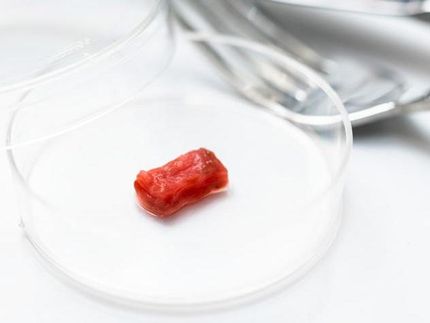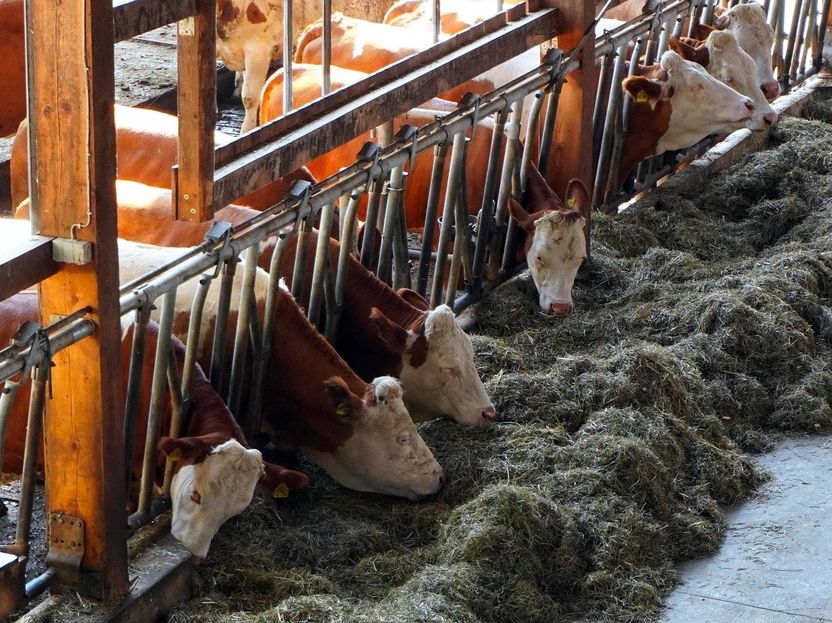63% of consumers would try cultured meat
Advertisement
63% of consumers would try cultured meat and about 46% would buy it. The three main reasons for its consumption would be: animal welfare (63%), respect for the environment (50%) and curiosity to try it (48%). The profile of the potential artificial meat consumer has healthy eating habits and belongs mostly to Generation Z.

Computer generated picture
Among the main barriers cited by the people consulted for the purchase of artificial meat are: a possible high price (52%), lack of information (45%) and distrust (44%). However, the majority of consumers, 78%, say that they complement the consumption of cultured meat with traditional meat or vegetable alternatives.
At present, the majority of consumers, 95%, meet their protein needs by including animal protein in their regular diet. Twenty-three percent do so by consuming vegetable protein and 33% consume protein-enriched foods.
These are the data from the report: "Consumer perception of cultured meat", presented today by the General Director of Innovation of the Regional Ministry of Innovation, University, Science and Digital Society, Sonia Tirado; the General Director of AINIA, Cristina Del Campo and the Head of Market Research at AINIA, Cristina Jodar, within the framework of the Smartmeat project.
Protein consumption
Regarding the consumption habits of products with animal proteins, 63% of the regular consumers of this type of products have maintained their consumption compared to 34%, 1 out of 3, who claim to have decreased their consumption of products with animal proteins during the last 2 years. Millennials and reducetarians are the consumers who have reduced their consumption the most.
In terms of protein consumption projections, animal protein will see a greater reduction in consumption than vegetable protein and protein-enriched foods over the next two years. In fact, 47% claim to have increased their consumption of protein-enriched foods in the same period.
53% believe that they will increase their consumption of vegetable protein in the next few years. However, 33% believe that there is little supply of alternative products to plant-based proteins compared to 39% who consider this supply to be sufficient.
Need for new protein sources
The UN puts the world's population at 8 billion people, an increase of
1 billion people in just twelve years, which means that 8.5 billion people will inhabit the world by 2030. In addition to the significant demand for food generated by this population growth, the Food and Agriculture Organization of the United Nations (FAO) estimates that meat consumption will increase by almost 73% by 2050, as a result of higher per capita consumption of animal protein in developing countries.
In order to meet this rising demand, it is necessary to ensure sustainability in the production of this resource, through more efficient processes and the use of new protein sources that guarantee a fair, healthy and environmentally friendly food system. In line with the priorities of the European Green Pact and the guidelines set out in Agenda 2030.
For the general director of Innovation of the Regional Ministry of Innovation, University, Science and Digital Society, Sonia Tirado, "from the Generalitat we work for the industry to incorporate innovative technological solutions that make their production processes more efficient. The results of this study will be useful for companies to identify opportunities and barriers in the market launch of products made from cultured meat and how they could affect aspects such as health, consumption of natural resources or animal welfare in their purchasing decision".
Sustainable proteins to meet global demand
Alternative proteins offer great opportunities for a variety of processes that can provide a sustainable alternative to animal protein production to complement the current value chain. Food companies face the challenge of responding to the growing demand for animal protein with innovative alternatives based on vegetables, insects, microbial proteins (SCP), legumes or cultured meat, among other sources.
The general manager of AINIA, Cristina Del Campo, emphasized that in order for meat analogues or meat obtained in laboratories to become sustainable alternatives and products accepted by the consumer, "it is necessary to overcome a series of technological challenges such as achieving organoleptic properties similar to meat or the high cost of production, which require an extensive effort in research, innovation and development".
To all this, added Cristina Del Campo, "we can add the trends that demand personalized nutrition, that is, solutions that consider the state of health, preferences, physical activity, life rhythms of the population, and of course, the prevention or treatment of diseases, which, together with the search for alternative proteins, can be considered the main driving force of innovation in the agri-food sector today".
In this line, AINIA has the support of the Conselleria d'Innovació in the research and development of appropriate technologies to achieve efficient and sustainable production of in vitro meat for future industrialization. In this way, the SMARTMEAT project has been directed to the generation and adaptation of both knowledge and technologies with a high transferability potential.
In addition, AINIA is working on obtaining meat analogues from alternative protein sources such as: soybean, pea, cereals (rice, hemp), insects (Tenebrio molitor); potato and other legumes through the application of extrusion technologies. Texture is one of the main technological challenges to be overcome in vegetable meat analogues, so, within the framework of the Vegext project, this innovative technology has been investigated as one of the technological lines of greatest impact and potential for overcoming this problem.
Note: This article has been translated using a computer system without human intervention. LUMITOS offers these automatic translations to present a wider range of current news. Since this article has been translated with automatic translation, it is possible that it contains errors in vocabulary, syntax or grammar. The original article in Spanish can be found here.




































































